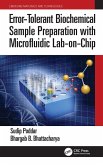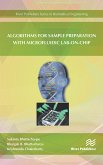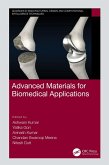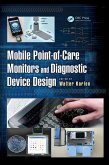- Describes a comprehensive framework for designing a robust and error-tolerant biomedical system which will help in migrating from cumbersome medical laboratory tasks to small-sized LOC-based systems
- Presents a comparative study on current error-tolerant strategies for robust sample preparation using DMFBs and reports on efficient algorithms for error-tolerant sample dilution using these devices
- Illustrates how algorithmic engineering, cyber-physical tools, and software techniques are helpful in implementing fault tolerance
- Covers the challenges associated with design automation for biochemical sample preparation
- Teaches how to implement biochemical protocols using software-controlled microfluidic biochips
Interdisciplinary in its coverage, this reference is written for practitioners and researchers in biochemical, biomedical, electrical, computer, and mechanical engineering, especially those involved in LOC or bio-MEMS design.
Dieser Download kann aus rechtlichen Gründen nur mit Rechnungsadresse in A, B, BG, CY, CZ, D, DK, EW, E, FIN, F, GR, HR, H, IRL, I, LT, L, LR, M, NL, PL, P, R, S, SLO, SK ausgeliefert werden.









